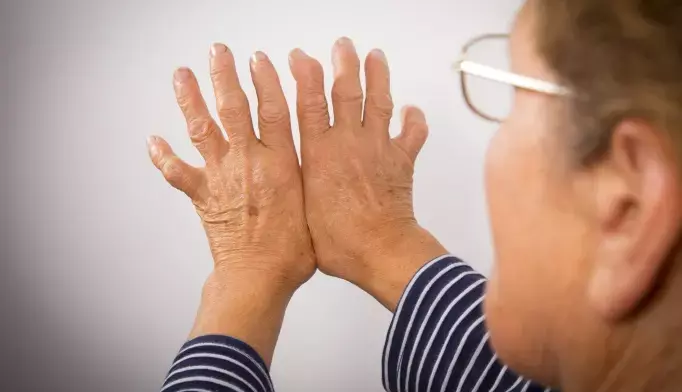- Home
- Medical news & Guidelines
- Anesthesiology
- Cardiology and CTVS
- Critical Care
- Dentistry
- Dermatology
- Diabetes and Endocrinology
- ENT
- Gastroenterology
- Medicine
- Nephrology
- Neurology
- Obstretics-Gynaecology
- Oncology
- Ophthalmology
- Orthopaedics
- Pediatrics-Neonatology
- Psychiatry
- Pulmonology
- Radiology
- Surgery
- Urology
- Laboratory Medicine
- Diet
- Nursing
- Paramedical
- Physiotherapy
- Health news
- Fact Check
- Bone Health Fact Check
- Brain Health Fact Check
- Cancer Related Fact Check
- Child Care Fact Check
- Dental and oral health fact check
- Diabetes and metabolic health fact check
- Diet and Nutrition Fact Check
- Eye and ENT Care Fact Check
- Fitness fact check
- Gut health fact check
- Heart health fact check
- Kidney health fact check
- Medical education fact check
- Men's health fact check
- Respiratory fact check
- Skin and hair care fact check
- Vaccine and Immunization fact check
- Women's health fact check
- AYUSH
- State News
- Andaman and Nicobar Islands
- Andhra Pradesh
- Arunachal Pradesh
- Assam
- Bihar
- Chandigarh
- Chattisgarh
- Dadra and Nagar Haveli
- Daman and Diu
- Delhi
- Goa
- Gujarat
- Haryana
- Himachal Pradesh
- Jammu & Kashmir
- Jharkhand
- Karnataka
- Kerala
- Ladakh
- Lakshadweep
- Madhya Pradesh
- Maharashtra
- Manipur
- Meghalaya
- Mizoram
- Nagaland
- Odisha
- Puducherry
- Punjab
- Rajasthan
- Sikkim
- Tamil Nadu
- Telangana
- Tripura
- Uttar Pradesh
- Uttrakhand
- West Bengal
- Medical Education
- Industry
Short-term Prednisone therapy reduces disease severity in newly diagnosed RA patients: Study

Temporary use of low dose prednisone monotherapy leads to disease remission and improved clinical severity of the majority of newly diagnosed patients with rheumatoid arthritis (RA), suggests a study published in the Adv Rheumatol
The ACR/EULAR recommendations endorse the use of glucocorticoids (GCs) for rheumatoid arthritis (RA) patients' flares and as a bridge to a DMARD. However, the recommendation of low dose short-term monotherapy with glucocorticoids (GCs) remains open to the discretion of the clinician.
A group of researchers from U.S.A conducted a study to assess whether short-term use of low dose prednisone monotherapy was effective in inducing remission in newly diagnosed for rheumatoid arthritis (RA).
The researchers performed a retrospective analysis of patients newly diagnosed with rheumatoid arthritis (RA) at a Community Health Center in North Dakota was performed based on the ACR/EULAR RA classification criteria. Demographic and clinical data were abstracted from patients' medical charts. Patients treated with (< 10 mg/day) of prednisone up to 6 months were included. Response to prednisone was analyzed according to pre- and post-treatment DAS28-ESR score and EULAR response criteria.
The results of the study are as follows:
- Data on 201 patients were analyzed.
- The mean prednisone dose was 8 mg/day and the mean treatment duration was 42.2 days Disease severity significantly improved from baseline to follow-up for the tender joint count, swollen joint count, and visual analog pain score.
- DAS28-ESR disease severity significantly improved from baseline to follow-up.
- Per EULAR response criteria, 69.7% of patients showed good response to treatment and 20.4% showed a moderate response. 54.2% of patients reached remission.
Thus, the researchers concluded that short-term use of low dose prednisone monotherapy induced disease remission and improved clinical severity of rheumatoid arthritis in the majority of newly diagnosed patients.
Reference:
The efficacy of low dose short-term prednisone therapy for remission induction in newly diagnosed rheumatoid arthritis patients by Stacy J et. al published in the Adv Rheumatol.
DOI: 10.1186/s42358-021-00205-4
Dr. Shravani Dali has completed her BDS from Pravara institute of medical sciences, loni. Following which she extensively worked in the healthcare sector for 2+ years. She has been actively involved in writing blogs in field of health and wellness. Currently she is pursuing her Masters of public health-health administration from Tata institute of social sciences. She can be contacted at editorial@medicaldialogues.in.
Dr Kamal Kant Kohli-MBBS, DTCD- a chest specialist with more than 30 years of practice and a flair for writing clinical articles, Dr Kamal Kant Kohli joined Medical Dialogues as a Chief Editor of Medical News. Besides writing articles, as an editor, he proofreads and verifies all the medical content published on Medical Dialogues including those coming from journals, studies,medical conferences,guidelines etc. Email: drkohli@medicaldialogues.in. Contact no. 011-43720751


